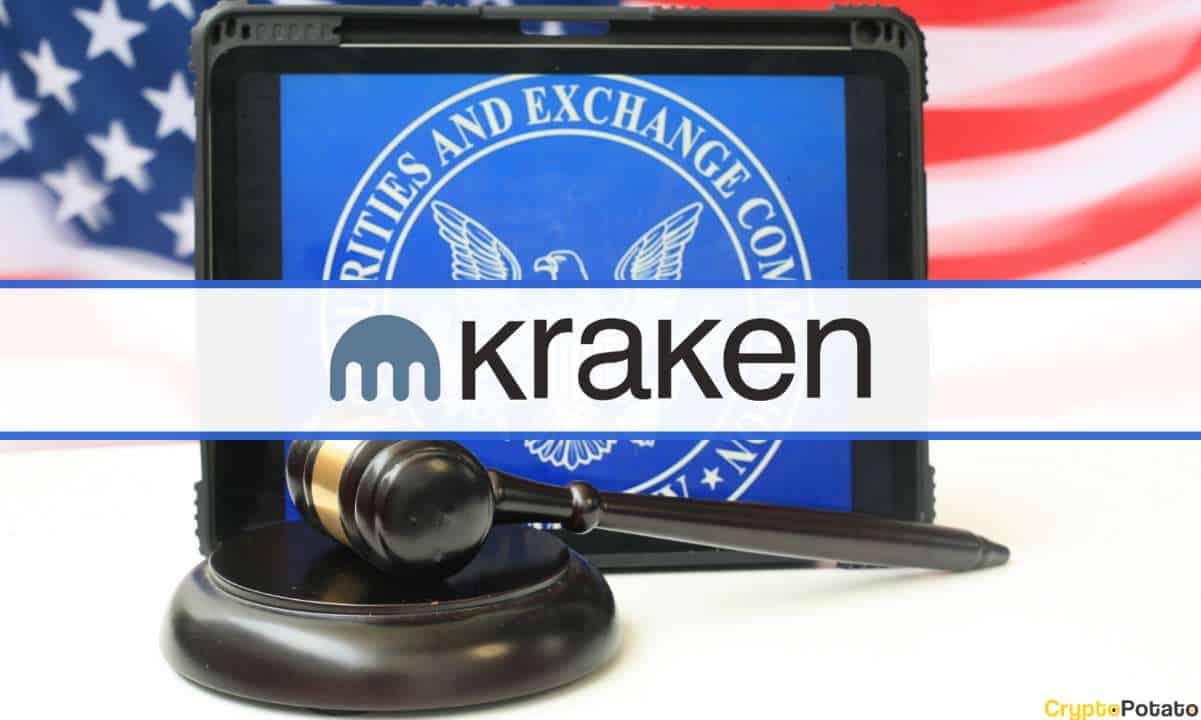[ad_1]

The U.S. Securities and Exchange Commission (SEC) filed a 90-page lawsuit against cryptocurrency exchange Kraken on Monday, re-centering the firm among a handful of crypto giants in the agency’s legal crosshairs.
The lawsuit accuses Kraken of a slew of securities law violations, and of commingling customer funds with corporate assets in ways that could risk major losses for both parties.
The SEC Strikes Again
Per an accompanying press release from the SEC, Kraken has simultaneously operated as an unregistered securities exchange, broker, dealer, and clearing agency in the United States, intertwining all such traditional services since 2018.
Specifically, the company made nine-figure profits by “unlawfully facilitating the buying and selling of crypto asset securities.”
Such charges mimic those that the SEC levied against Coinbase and Binance in June, naming many of the same “crypto asset securities” mentioned in the prior lawsuits, alongside some new tokens like ALGO, ATOM, COTI, MANA, and OMG.
“Kraken’s choice of unlawful profits over investor protection is one we see far too often in this space, and today we’re both holding Kraken accountable for its misconduct and sending a message to others to come into compliance,” stated SEC enforcement director Gurbir S. Grewal.
In their respective defenses, Binance and Coinbase have denied listing securities on their platform, accusing the SEC of misinterpreting securities laws to be overly broad.
Binance, for instance, has likened cryptocurrencies involved within an investment contract to oranges or trading cards – not to investment contracts themselves which inherently include an expectation of profit.
In a conversation with CryptoPotato, patent lawyer Sandy Seth argued that the SEC’s arguments contain no merit in either its case against Kraken or Coinbase, for largely the same reasons.
“Investment contracts require some form of financial interest in a company, ie common enterprise,” he argued. “This is also why sports or concert tickets or antique cars or art are not securities.”
Commingling Funds
Regarding its handling of customer assets, Kraken used poor internal accounting that put customer funds at risk, including paying operational expenses using accounts that held customer assets.
The agency noted that Kraken’s own internal auditor said the company’s practices created “a significant risk of loss” for customers. For example, the auditor found that as of December 31, 2021, Kraken held $33.6 million worth of customer fiat within its corporate accounts.
The company’s poor internal controls allegedly led to accounting deficiencies around customer assets held in 2020 and 2021 that have only been identified in August of this year.
“These errors were a result of Kraken’s poor recordkeeping practices and failure to properly record margin transactions, underscoring the deficient internal controls at the company,” the SEC wrote.
Back in February, Kraken paid $30 million to settle charges with the SEC related to its staking as a service product, which the SEC considered an unregistered security.
The post The SEC Just Sued Kraken: Here’s Why appeared first on CryptoPotato.
[ad_2]
Source link
